Yes, in Portugal, several species of sharks are found in its waters. The most common ones you would find include the basking shark, blue shark, hammerhead shark, and the occasional thresher and mako shark.
However, due to their populations being greatly reduced over the years by fishing activities, these sightings are not very frequent. In this article, I will discuss in detail the different sharks you can find in Portugal’s waters, their habitats, and ways to stay safe while swimming.
Which sharks are there in Portugal?
Sharks are some of the most fascinating and intimidating creatures that inhabit the world’s oceans. They come in all shapes and sizes, from small to harmless to large and deadly. In Portugal’s waters, there are several species of sharks that you might encounter. Let’s take a closer look at a few of them.
Basking Shark
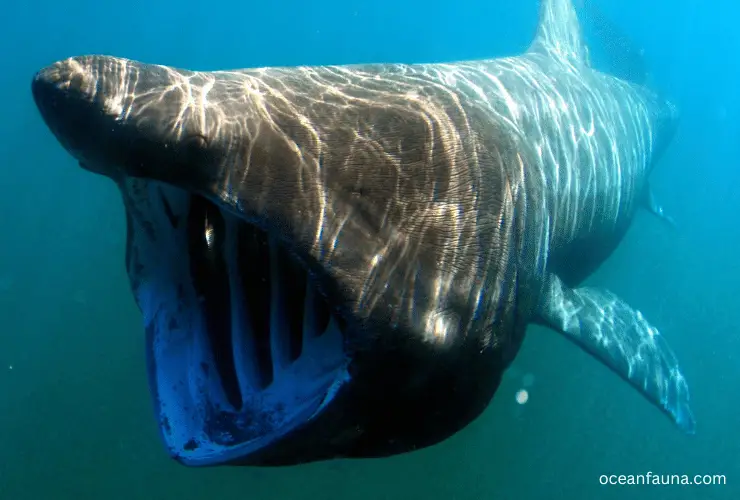
The basking shark (Cetorhinus maximus) is the second-largest living fish after the whale shark. These sharks are often found in the colder waters of the North Atlantic and Pacific oceans. They are called “basking” sharks because they tend to hang out near the water’s surface, appearing to bask in the sun. Despite their massive size, they are harmless to humans and feed mainly on plankton.
Blue Shark
The blue shark (Prionace glauca) is a slender and streamlined shark with a bright blue color on its back and sides. These sharks are found in temperate and tropical waters all over the world. They are known for their curiosity and will often approach boats and divers.
While they are generally not considered dangerous to humans, they have been known to attack people in rare cases.
Shortfin Mako Shark
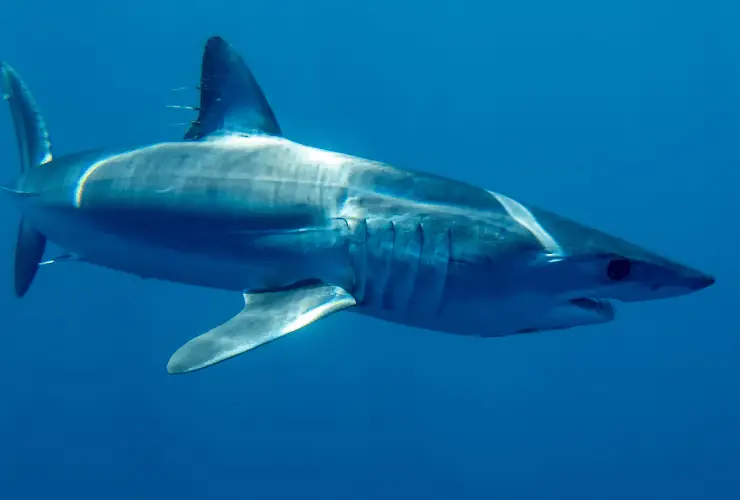
The shortfin mako shark (Isurus oxyrinchus) is one of the fastest sharks in the world and can reach speeds of up to 60 miles per hour. These sharks are found in temperate and tropical waters and are known for their blue-gray coloration and smooth, bullet-shaped bodies.
Spiny Dogfish
The spiny dogfish (Squalus acanthias) is a small shark that is found in temperate and subarctic waters all over the world. They are known for their sharp spines on their dorsal fins and are often caught for their meat, which is used in fish and chips. Although they are generally considered harmless to humans, they may attack people in rare cases.
Common Thresher Shark
The common thresher shark (Alopias vulpinus) is a large and powerful shark found in temperate and tropical waters worldwide. They are known for their long, whip-like tail, which they use to stun their prey.
Hammerhead Shark
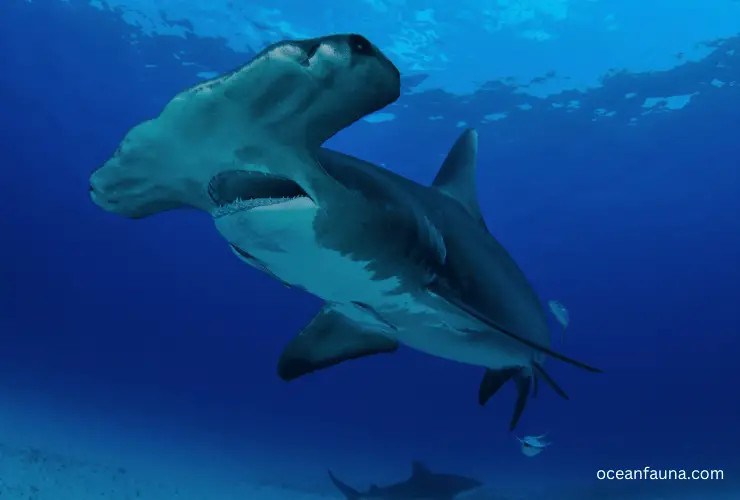
The hammerhead shark (Sphyrna spp.) is a family of sharks that are named for their distinctive hammer-shaped heads. These sharks are found in warm waters worldwide and are known for their unique hunting behavior, which involves using their wide heads to pin down and eat their prey.
Portuguese Dogfish
The Portuguese dogfish (Centroscymnus coelolepis) is a deep-sea shark that is found in the northeastern Atlantic Ocean. They are known for their large, sharp teeth and are often caught for their meat, which is used in fish and chips.
Kitefin Shark
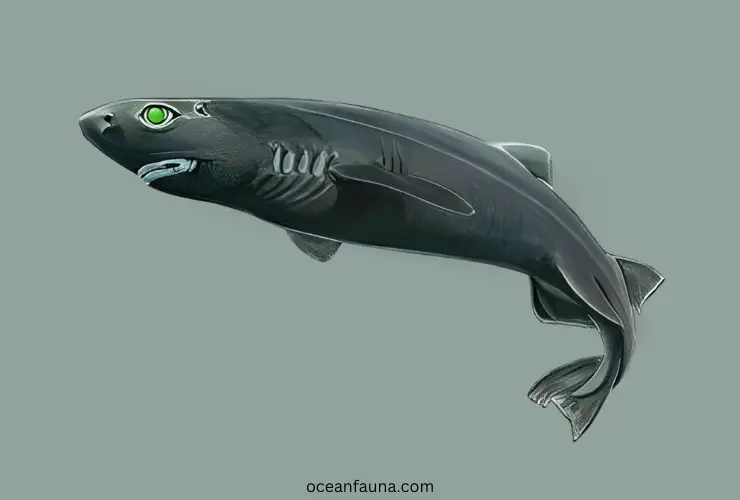
The kitefin shark (Dalatias licha) is a deep-sea shark that is found in temperate and tropical waters all over the world. They are known for their elongated bodies and large, pointed fins. Great White Shark
The great white shark (Carcharodon carcharias) is one of the world’s most iconic and feared predators. These sharks are found in temperate and tropical waters all over the world and are known for their huge size, powerful jaws, and sharp teeth. While attacks on humans are very rare, they have been known to occur in some cases.
Where Are Sharks Mostly Seen in Portugal?
Sharks are known to inhabit various oceanic regions around the world, and Portugal is no exception. The predominantly seen shark species in Portugal are the blue shark (Prionace glauca), the shortfin mako shark (Isurus oxyrinchus), etc.
The blue shark, also known as the blue whaler, is a pelagic species found in the open ocean. They are known for their slender and streamlined bodies, dark blue coloring on the upper dorsal surface, and light blue color on the underbelly.
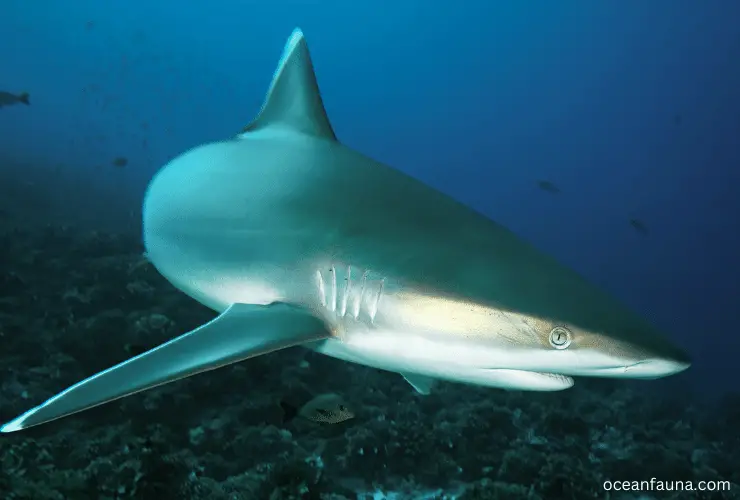
Blue sharks are usually seen in high numbers off the Portuguese coast of the eastern Atlantic Ocean, mainly due to the warmer waters, making it an ideal breeding ground for these creatures.
The shortfin mako shark is an apex predator with an elongated body and pointy snout. They are usually found in tropical and temperate waters across several regions, such as the Atlantic, Indo-Pacific, and Mediterranean.
Mako sharks are known for their impressive swimming speed, capable of reaching up to 60 km/hr. They are seen off the Portugal coasts all year round, but they move closer to the shorelines during summer months to feed on prey.
The Portuguese waters are also home to several other shark species, such as the hammerhead shark, common thresher shark, spiny dogfish, and more. These sharks can be seen in areas with smaller amounts of marine life, such as rocky outcroppings and offshore islands.
Are There Great White Sharks in Portugal?
Yes, there are great white sharks in Portugal. These apex predators are known to inhabit the North Atlantic waters around Portugal and other areas around the world.
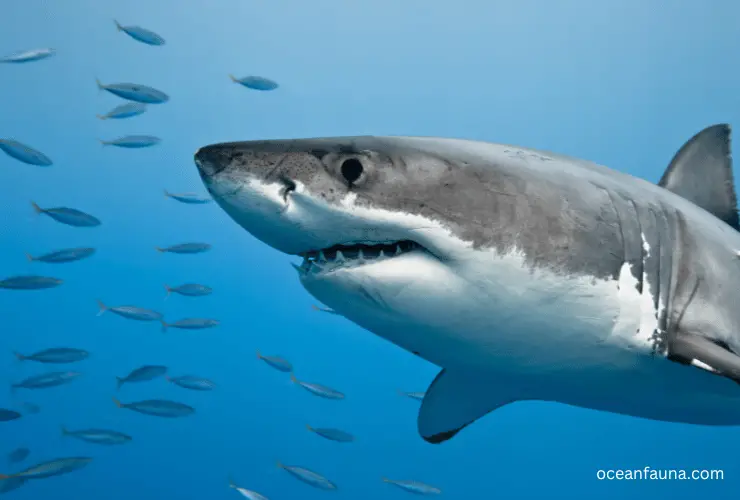
Attacks by great white sharks on humans are relatively rare, despite their fearsome reputation. Sharks typically only attack humans when they mistake them for their natural prey, such as seals or fish, or when they feel threatened and seek to defend themselves.
Also, people can take strategies and precautions to minimize the risk of a shark attack, such as avoiding swimming in areas known to be frequented by sharks or wearing protective gear such as wetsuits.
Despite their infamous reputation, great white sharks play a vital role in maintaining healthy ocean ecosystems. As apex predators, they help to regulate the populations of other species, and their presence can indicate a diverse and healthy marine environment.
However, overfishing and other human activities have threatened great white shark populations in many areas, and efforts are being made to protect and conserve these important animals.
Are There Sharks Attack in Portugal?
Based on the available data, there have been a very limited number of shark attacks in Portugal’s history. To be precise, only eight such attacks have been reported. Among them, two fatal attacks took place off the coast of Funchal, Madeira. However, there is no record of any shark attack ever occurring in the mainland area of Portugal.

The two fatal attacks recorded in Madeira both occurred more than four decades ago, during fishing trips in 1979 and 1956, respectively. This highlights the rarity of such incidents in Portugal. There have been no recent reports of shark attacks in the country.
Moreover, Portugal’s coastline is generally considered safe for swimming, with a strong emphasis on safety measures such as lifeguards monitoring the beaches during peak season.
Is It Safe to Dive in Portugal?
It is generally safe to dive in Portugal without worrying about shark attacks. Most of the sharks that are found near the shore in Portugal are classified as harmless to humans, and they mainly feed on smaller fish, plankton, and crustaceans.
This means that there is minimal risk of encountering a dangerous or aggressive shark while diving in Portugal. However, remember that ocean conditions can be unpredictable, and some risks are always associated with water-based activities.
Take standard safety precautions while diving, such as following established diving procedures and guidelines, wearing appropriate equipment, and diving with a partner or knowledgeable guide.
Diving during daylight hours and avoiding areas with higher concentrations of sharks or other potentially dangerous marine life can also help minimize any risks.
Diving with Sharks in Portugal: Best Time to Come
If you plan to go diving with sharks in Portugal, know the best time to come. July to October is the best time to dive with sharks in Portugal.
During this time, the water temperature in Portugal is warm, ranging from 18°C to 23°C, making it the perfect time to dive with sharks. It is also the time when the seas are at their calmest, providing ideal conditions to swim with these fascinating creatures.
Portugal is home to a variety of shark species, including blue sharks and the occasional sighting of hammerhead sharks. Blue sharks are the most commonly sighted shark species in Portugal and can be found in the relatively shallow waters of the Atlantic Ocean.
Apart from the optimal water temperatures and calm seas, July to October is the best time to dive with sharks in Portugal because it coincides with the peak of the seal breeding season.
Seals are a favorite prey of sharks, and their presence in the waters around Portugal attracts large numbers of sharks. As a result, divers have an increased chance of spotting sharks during this period.
Diving with sharks in Portugal is only permitted with licensed and accredited diving schools. These schools ensure that divers adhere to the highest standards of safety and responsible diving practices.
They also offer courses designed to enable divers to explore and appreciate the beauty of marine life, including sharks, while minimizing their environmental impact.
Conclusion
Hopefully, you have detailed knowledge about all the sharks in Portugal. Portugal’s waters are home to several species of sharks, but the most commonly encountered species is the blue shark. Other species that are found around Portugal include hammerheads, common threshers, and spiny dogfish.
Attacks by great white sharks on humans are rare in Portugal due to the limited number of reported incidents. However, it is always advisable to take necessary safety precautions if you plan to swim or dive in Portugal.
